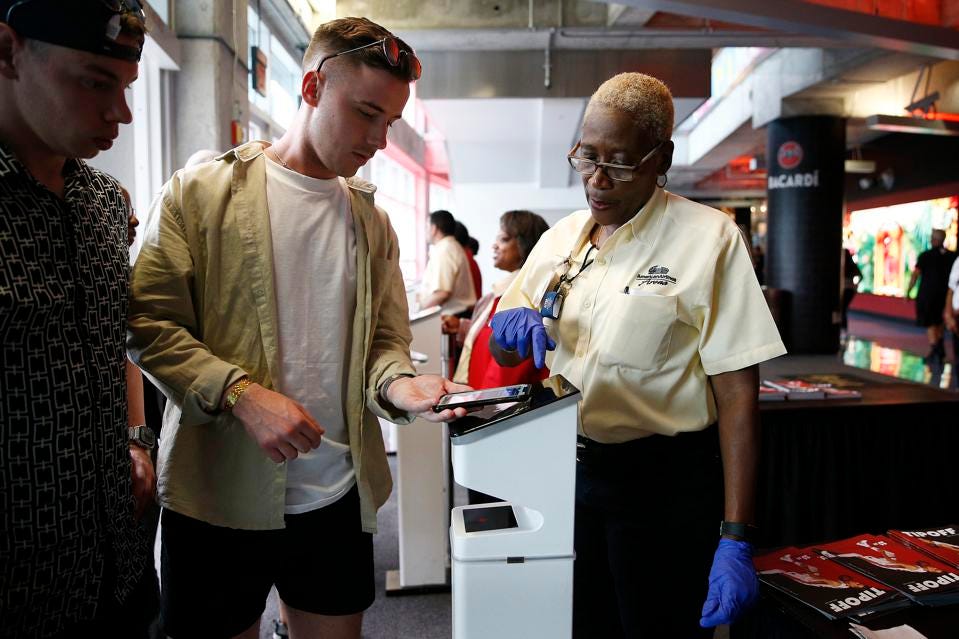601 Analytics, the startup tech group borne out of the Miami Heat business operations department, first expanded their innovative approach to gathering data in January of 2020, entering “into a groundbreaking licensing agreement” with the Milwaukee Bucks, a rival NBA team.
In the two years since, 601 Analytics has continued to develop their platform – through the start of the pandemic, the shutdown of professional sports, and the subsequent reopening of the sports economy – and has been selected by the NBA to provide their ticketing and data platform to the entire league, according to Matthew Jafarian, the Executive Vice President of Business Strategy for the Heat.
“It used to be all manual,” says Jafarian. “[Teams] had to send a report to the league office – here’s how many tickets we sold, here’s how our attendance has been – but now we’ve automated the whole process, and the NBA taps directly into the ticketing platform data for every team.”
In addition to providing their platform to the NBA, 601 has begun working with Ilitch Sports & Entertainment, the subsidiary of Ilitch Holdings that represents the NHL’s Detroit Red Wings and MLB’s Detroit Tigers, as well the venues for those teams, Little Caesar’s Arena and Comerica Park. The Bucks have extended their contract with 601 beyond the terms of their initial agreement, as well.
“It’s been really interesting to see the demand,” says Jafarian, who adds that 601 has also spoken to teams and venues both in the United States and in Europe. “The pandemic accelerated an existing trend, a drive to digital ticketing and contactless sales. Now, there’s all this data that comes with it. And all these teams are saying, “Hey, we know we need to get on the bandwagon. How do we do this quickly? And how do we get value out of this?” We’re continuing to grow, slow and steady, but the market is pushing us pretty quickly.”
The NBA shutdown in mid-March of 2020 was a challenge for 601 – with no fans in attendance, there’s no data to gather – but it allowed the group to make “significant changes” to the platform, according to Edson Crevecouer, 601’s COO as well as the Senior Vice President for Strategy and Data Analytics for the Heat. “When sports shut down, we had a really unique time to focus on innovation and R&D. We spent all that time really investing into the product,” adds Jafarian.
New, more comprehensive reports process attendee numbers at FTX Arena for any Heat game or concert in real time. More strategic goals, from season ticket sales to managing corporate partnerships, can be mapped out and predicted with near-certain accuracy. Comprehensive profiles of attendees can track one’s propensity for food and beverage purchases or the last time you bought team-related merchandise, all of which can be used by teams to manage sales and in-arena staff more effectively than ever before.
The NBA has embraced the platform completely, according to Jafarian.
“What used to take an organization a month and a half, can now be done in a week.” The platform has met the league’s safety and cyber-compliance requirements, too, a point of emphasis that Crevecouer says separates them from any current or future competitors.
“We’re addressing certain key concerns around the industry, especially around the protection and ownership of data,” says Crevecouer. Clients retain full use of any gathered data, maintaining control of the platform and its use. “We preceded the demand from the industry. [But] I think we’re also prepared for the near future.”
The visionary nature of the platform makes for its own set of challenges, however. “I think our biggest challenge is just awareness,” says Jafarian. “People don’t know what we do. We’re ahead of the market where we offer more than what some teams and leagues can handle right now. Our product is more mature than they are. So a lot of the conversations we’re having, it’s ‘Hey, how do we go from zero to 60?’
“[But] We wanted to share what had changed our organization because we knew there was value there. Sports teams have evolved significantly, in the past couple of decades. We’re now multi billion-dollar organizations. We’re no longer mom-and-pop shops. We’re sophisticated organizations with hundreds of employees. And we’re starting to act like it. And I think we needed to create a solution to meet that moment. We wanted to share it with others because it had changed our business for the better. Made us run more efficiently, more effectively. And we just said, ‘Hey, let’s offer this to others.’ And it’s been pretty interesting to see how people take to it.”
